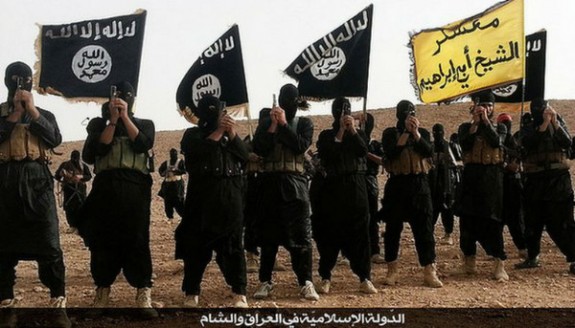For several years, Middle East experts and observers have warned that the Islamic State terrorist organization is not dead, even if it was defeated on the battlefield. Its Islamist ideology is still very much alive, and though the self-proclaimed Caliph, Abu Bakr al-Baghdadi, might have died in a raid in 2019, his followers have not given up on his vision.
Now, it is feared, a disease is bringing ISIS back to life.
With national and local governments focusing largely on the coronavirus pandemic, ISIS appears to be regrouping, reorganizing and engaging communities in the Near East and parts of Africa. They are capitalizing on the frustration of people in areas undergoing economic stress and taking advantage of conspiracy theories to win populations over to their promise of a better life under the Caliphate.
“Three years after the destruction of its so-called caliphate and the dismantling of its organizational leadership by an American-led coalition, ISIS has since March shown renewed strength, staging dozens of attacks in Iraq, Syria, Egypt, and West Africa,” reported Taylor Luck in the Christian Science Monitor.
A report to the United Nations Security Council warned last week that ISIS is “consolidating in Iraq and the Syrian Arab Republic, and showing confidence in its ability to increasingly operate in a brazen manner in its core area.”
“Alarming experts is ISIS’s ability to move freely between eastern Syria and western Iraq — territory that once fell under its ‘caliphate’ — entering towns and villages with relative ease,” Luck writes. “Its ranks boast around 10,000 fighters, according to U.N. and analysts’ estimates.”
In a recent report, Fr. Emanuel Youkhana, director of the Christian Aid Program of Northern Iraq, paints a bleak picture of the situation in Iraq, which would seem to leave an opening for a group like ISIS: “Poverty is increasing (according to UN estimates, in 2020 the poverty rate in Iraq will reach 40%). The infrastructures are worn out with no solutions. The basic services of electricity, water and health are collapsed. The educational system is a failure. No development programs, job opportunities are not available and unemployment is increasing (over 30%).
“Although four years have passed since the defeat of ISIS, the Iraqi state has failed to respond to the requirements for a decent life to the Iraqi people and has failed to achieve any practical steps in the reconstruction and building of Iraq as a modern country,” Fr. Youkhana writes.
The priest said that Iraqi state institutions have not yet discussed and reviewed the “legislative, cultural, educational and societal environment that facilitated and enabled ISIS” to target religious minorities “and the requirements to prevent such a disaster from recurring.”
“The Iraqi state still considers ISIS terrorism as a cross borders terror, and it continues to deny, for political and sectarian reasons towards Sunni Arabs, the existence of a societal environment incubating ISIS,” Youkhana maintains. “It is a denial that increases the concerns of religious minorities.”
In Africa, meanwhile, the situation is no less troubling. There too, ISIS has used the pandemic as a diversion to expand, the Monitor reports. Islamists are using a network of surrogate groups and affiliates to “connect cross-border territories and overwhelm local forces in a way that experts say mirrors the rise of the caliphate in Iraq and Syria in 2014.”
ISIS affiliate Boko Haram, under the umbrella Islamic State West Africa Province (ISWAP), is expanding territory in Nigeria, Niger, and Chad; ISIS affiliate Islamic State in the Greater Sahara (ISGS) is extending in Niger and Mali. March 23 saw twin attacks by ISIS affiliates killing a combined 160 soldiers on both sides of the Nigerian-Chad border. This April saw the bloody arrival of ISIS’s “central African province,” with affiliates waging their first large-scale attack in Mozambique, massacring 50 villagers on April 7, and the same day killing seven civilians in the Democratic Republic of Congo.
One thing that seems to be helping the group’s advance is the social isolation, unemployment and search for answers that the pandemic has brought on.
“ISIS’s online propaganda has depicted the coronavirus as ‘divine retribution’ against the West and highlighted states’ failures,” the Monitor writes.
Says Nikita Malik, director of the Center on Radicalization and Terrorism at the Henry Jackson Society, a trans-Atlantic think tank based in London, “It is a toxic mix, and what we might be seeing in the long term are spikes in both extremism and terrorism.”

